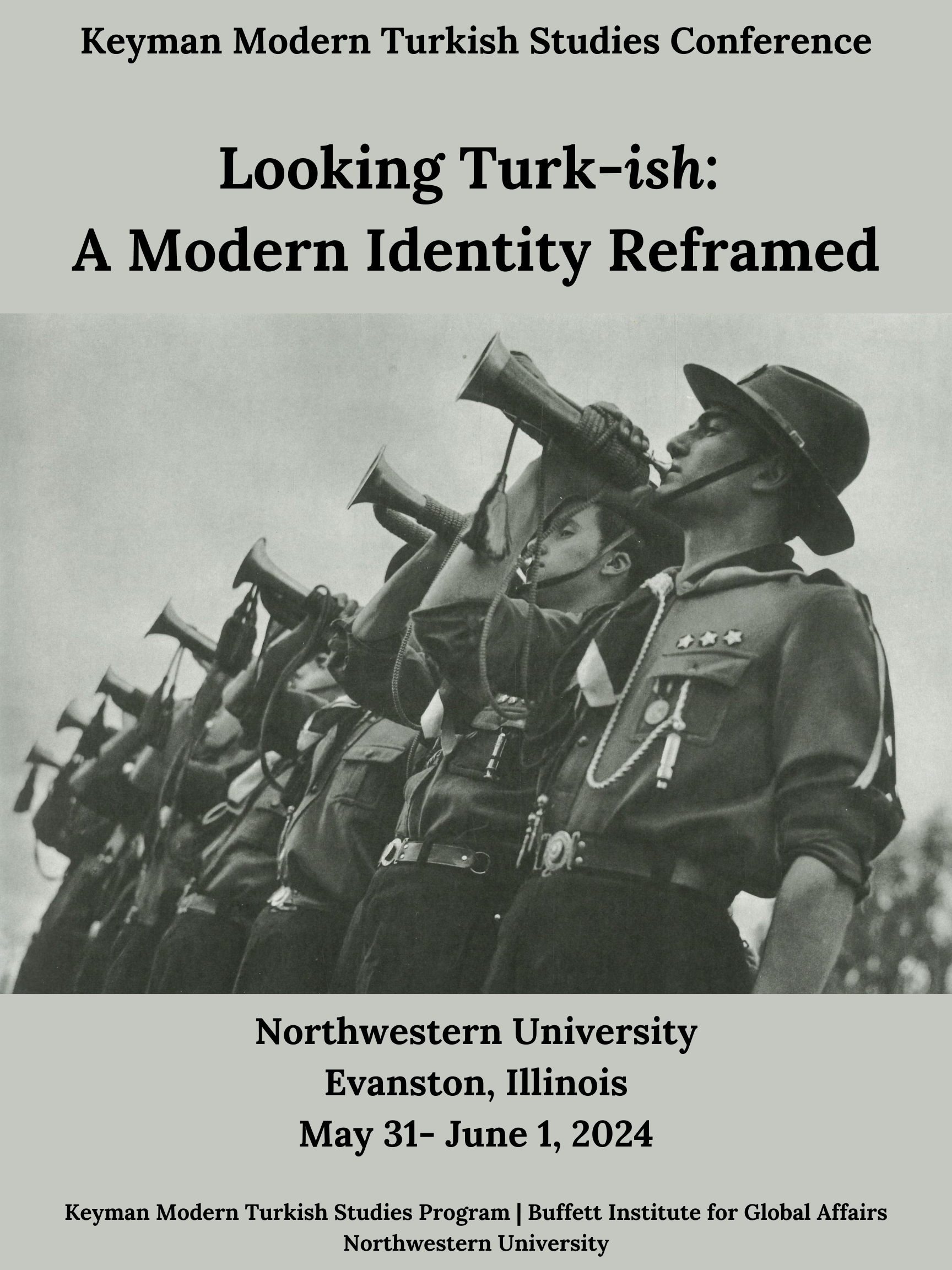Northwestern University, Keyman Modern Turkish Studies Program, 7th Annual Conference

Each year, the Keyman Modern Turkish Studies Program convenes a conference around a chosen theme. This year's conference will be dedicated to the role of visual objects and technologies in the making of modern Turkish identity, and it will take place in Northwestern University’s Evanston campus on May 31- June 1, 2024.
The conference aims to engage received understandings of modern Turkish identity by reappraising the images, objects, and visual technologies that contributed—and continue to contribute—to its production. This visual archive represents a dispersed and diverse collection ranging in medium and genre, from lens-based media like photography and film, to cartoons, maps, performances, advertisements, and fashion. The purpose of the conference is to analyze this archive to reframe Turkish identity as a visual artifact indissociable from the technologies and objects that produce it.
The conference is premised on the understanding of “Turkishness” as precarious, protean, and subject to resistance (hence the “-ish” of our title). The articulation of Turkish identity is inseparable from its dialectical emergence alongside other identities such as Armenian, Arab, Kurdish, Bulgarian, Greek, and Jewish, among other religious and ethnic identities of the post-Ottoman Middle East and Eastern Mediterranean. These communal identities were directly implicated in the visual formation of hegemonic Turkish identity in Turkey. For Turkish diasporas in Europe, especially after the labor migrations starting with Germany’s Gastarbeiter program in the 1960's followed by waves of political dissidents in exile, this dialectical relationship was also embedded in the racialized and often hostile context of “host” societies. Accordingly, the conference foregrounds visual culture's unique functions in mediating ethnic and religious differences, as well as its intersections with gender, sexuality, and ability in Turkey and its various diasporic communities.
The visual production of modern Turkish identity is both a historical and ongoing process. As such, the conference takes a wide historical frame, examining technologies and objects dating from the turn of the 20th century to the present. The conference’s focus will be on Turkey, yet like “Turkishness” itself, we conceive of Turkey as a geographically and culturally flexible entity rather than a stable referent or bounded nation state. Because the visual archives of Turkish identity follow several diasporas and migrations, the conference hopes to include images and objects considered historically and geographically marginal to Turkish culture and society.
Some of the questions we consider include:
*What and where are the objects that make up the visual archive of Turkish identity, and what is their relationship to other kinds of archives, such as state-run archives, private collections, and museums?
*What are the particular responsibilities of these objects and technologies in the production of Turkish identity?
*In what ways did they serve as instruments of institutionalized authorities, including state power, and as sites of resistance against such authorities?
*How does our focus on visual materials enrich our understanding of Turkish identity in both its historical and present conditions?